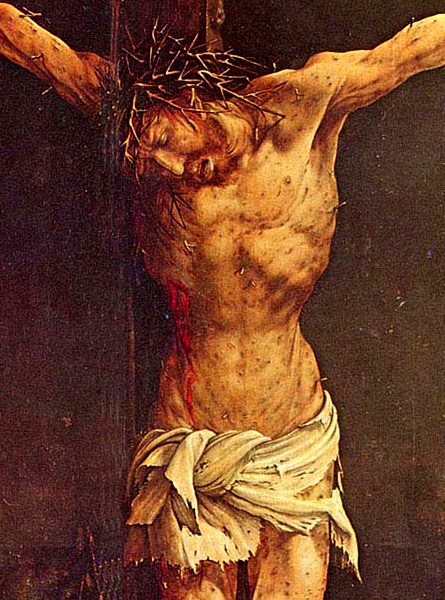« America’s Persecuted Minority : Big Business » (1961)
Pasionaria du capital
« En tant qu’avocate de la raison, de l’égoïsme et du capitalisme, je cherche
à atteindre les hommes d’esprit où qu’ils se trouvent », expliquait Ayn Rand
(1905-1982) dans les prospectus invitant ses lecteurs à soutenir sa quête.
Contrairement à ce que pourrait suggérer l’extrait ci-dessous, Ayn Rand
n’était ni une illuminée ni une marginale. Emigrée d’Union soviétique,
elle s’installe en 1926 aux Etats-Unis et devient scénariste à Hollywood,
romancière à succès, essayiste politique, enseignante dans les universités
américaines les plus prestigieuses. Son combat contre toute forme d’intervention
publique bénéficiera d’une audience immense. M. Alan Greenspan, gouverneur
de la Réserve fédérale américaine de 1987 à 2006, fut vivement influencé
par la pensée d’Ayn Rand, dont il partagea le combat politique
www.monde-diplomatique.fr/mav/99/RAND/18028
noetic-jabberwocky.blogspot.fr/2011/08/gnostic-propaganda-hive-mind-you-are.html
What Nietzsche realized was that man must understand that life is not governed by rational principles. Life is full of cruelty, injustice, uncertainty and absurdity. There are no absolute standards of good and evil which can be demonstrated by human Reason. There is only naked man living alone in a godless and absurd world. Modern industrial, bourgeois society, according to Nietzsche, made man decadent and feeble because it made man a victim of the excessive development of the rational faculties at the expense of human will and instinct.
Against the tendencies of bourgeois society, Nietzsche stressed that man ought to recognize the dark and mysterious world of instinct -- the true life force. "Du sollst werden, der du bist," Nietzsche wrote. "You must become who you are." Excessive rationality, an over-reliance on Human Reason, does little more than smother the spontaneity necessary for creativity. For man to realize his potential, he must sever his dependence on reason and the intellect and instead, develop his instincts, drive and will. Christianity, with all its restrictions and demands to conform, crushes the human impulse to life. Christian morality must be obliterated because it is fit only for the weak and the slave.
Nietzsche said that the reason Christianity triumphed in the Roman world was that the lowest orders -- the meek and the mild -- wanted to inherit the earth from their aristocratic superiors. The lower orders were trying to strike back and subdue their superiors. They did this by condemning as evil those traits which they lacked: strength, power and the zest for life. Instead, the Christians made their own low and wretched lives the standard of all things to come. If you deviated from this standard, you were shackled with guilt. In his book, The Anti-Christ of 1888, Nietzsche wrote that:
Like Nietzsche, the Russian novelist FYODOR DOSTOEVSKY (1821-1881) attacked the fundamental world view of the Enlightenment, that great age of human reason. In all his novels, Dostoevsky viewed man as innately depraved, irrational and rebellious. In his novella, Notes From the Underground (1864), the narrator rebels against all plans or schemes for social improvement. He is critical of rationalists, liberals, positivists, humanists and socialists in their endeavor to improve the lot of mankind by fashioning a society based on abstract principles of human happiness. The Underground Man rebels against both science and reason. For the Underground Man, there are no absolute, universal or timeless truths to which all men ought to conform. The world, for Dostoevsky, is a terrifying world of naked wills all engaged in conflict with one another. All men do not seek happiness, says Dostoevsky. There are some, like the Underground Man, who choose suffering because it gratifies them. These individuals are repelled by peace, wealth, security and happiness. They do not want to be robots in some sterile, positivist world in which everything fits into one box or another. For the Underground Man, by following irrational impulses and engaging in irrational acts, human beings assert their individuality. In essence, they prove that they are free. The man who is truly free defines his existence according to his own needs and not those needs or standards that have been culturally created by society. As the Underground Man admits, "the rational faculty is simply 1/20th of all my faculties of life; life is more than reasoning, more than simply extracting square roots.
www.monde-diplomatique.fr/mav/99/RAND/18028
noetic-jabberwocky.blogspot.fr/2011/08/gnostic-propaganda-hive-mind-you-are.html
What Nietzsche realized was that man must understand that life is not governed by rational principles. Life is full of cruelty, injustice, uncertainty and absurdity. There are no absolute standards of good and evil which can be demonstrated by human Reason. There is only naked man living alone in a godless and absurd world. Modern industrial, bourgeois society, according to Nietzsche, made man decadent and feeble because it made man a victim of the excessive development of the rational faculties at the expense of human will and instinct.
Against the tendencies of bourgeois society, Nietzsche stressed that man ought to recognize the dark and mysterious world of instinct -- the true life force. "Du sollst werden, der du bist," Nietzsche wrote. "You must become who you are." Excessive rationality, an over-reliance on Human Reason, does little more than smother the spontaneity necessary for creativity. For man to realize his potential, he must sever his dependence on reason and the intellect and instead, develop his instincts, drive and will. Christianity, with all its restrictions and demands to conform, crushes the human impulse to life. Christian morality must be obliterated because it is fit only for the weak and the slave.
Nietzsche said that the reason Christianity triumphed in the Roman world was that the lowest orders -- the meek and the mild -- wanted to inherit the earth from their aristocratic superiors. The lower orders were trying to strike back and subdue their superiors. They did this by condemning as evil those traits which they lacked: strength, power and the zest for life. Instead, the Christians made their own low and wretched lives the standard of all things to come. If you deviated from this standard, you were shackled with guilt. In his book, The Anti-Christ of 1888, Nietzsche wrote that:
Christianity has waged a war to the death against this higher type of man. . . . Christianity has taken the side of everything weak, base, ill-constituted, it has made an ideal out of opposition to the instinct of strong life. . . . Christianity is a revolt of everything that crawls along the ground directed against that which is elevated.www.historyguide.org/europe/lecture3.html
Like Nietzsche, the Russian novelist FYODOR DOSTOEVSKY (1821-1881) attacked the fundamental world view of the Enlightenment, that great age of human reason. In all his novels, Dostoevsky viewed man as innately depraved, irrational and rebellious. In his novella, Notes From the Underground (1864), the narrator rebels against all plans or schemes for social improvement. He is critical of rationalists, liberals, positivists, humanists and socialists in their endeavor to improve the lot of mankind by fashioning a society based on abstract principles of human happiness. The Underground Man rebels against both science and reason. For the Underground Man, there are no absolute, universal or timeless truths to which all men ought to conform. The world, for Dostoevsky, is a terrifying world of naked wills all engaged in conflict with one another. All men do not seek happiness, says Dostoevsky. There are some, like the Underground Man, who choose suffering because it gratifies them. These individuals are repelled by peace, wealth, security and happiness. They do not want to be robots in some sterile, positivist world in which everything fits into one box or another. For the Underground Man, by following irrational impulses and engaging in irrational acts, human beings assert their individuality. In essence, they prove that they are free. The man who is truly free defines his existence according to his own needs and not those needs or standards that have been culturally created by society. As the Underground Man admits, "the rational faculty is simply 1/20th of all my faculties of life; life is more than reasoning, more than simply extracting square roots.



 en.wikipedia.org/wiki/Tortilla
en.wikipedia.org/wiki/Tortilla 

 Referring to the disastrous Maoist campaign to industrialize overnight,
he added, “It’s almost like another Great Leap Forward.”
Referring to the disastrous Maoist campaign to industrialize overnight,
he added, “It’s almost like another Great Leap Forward.”
 Définies comme les régions où l’eau est le principal facteur
d'influence du biotope et de sa biocénose, les zones humides sont
protégées par la Convention internationale de Ramsar depuis 1971. Malgré
cela, les zones humides de la planète, qu’elles soient d'eau salée
(estuaire, prés salés, mangroves, marais et lagunes côtières...) ou
d'eau douce (régions d'étangs, tourbières, prairies humides…), ont
régressé de plus de moitié au cours du siècle dernier, en grande partie à
cause de l’extension des..
Définies comme les régions où l’eau est le principal facteur
d'influence du biotope et de sa biocénose, les zones humides sont
protégées par la Convention internationale de Ramsar depuis 1971. Malgré
cela, les zones humides de la planète, qu’elles soient d'eau salée
(estuaire, prés salés, mangroves, marais et lagunes côtières...) ou
d'eau douce (régions d'étangs, tourbières, prairies humides…), ont
régressé de plus de moitié au cours du siècle dernier, en grande partie à
cause de l’extension des.. 








 NEW YORK
- Is this the Age of the Conspiracy Theory? Plenty of evidence
suggests that we are in something of a golden age for citizen
speculation, documentation, and inference that takes shape - usually on
the Internet - and spreads virally around the globe. In the process,
conspiracy theories are pulled from the margins of public discourse,
where they were generally consigned in the past, and sometimes into the
very heart of politics.
NEW YORK
- Is this the Age of the Conspiracy Theory? Plenty of evidence
suggests that we are in something of a golden age for citizen
speculation, documentation, and inference that takes shape - usually on
the Internet - and spreads virally around the globe. In the process,
conspiracy theories are pulled from the margins of public discourse,
where they were generally consigned in the past, and sometimes into the
very heart of politics. Naomi Wolf, the author, most recently, of The End of America: Letter
of Warning to a Young Patriot and the forthcoming Give me Liberty: How
to Become an American Revolutionary, is co-founder of the American
Freedom Campaign, a US democracy movement.
Naomi Wolf, the author, most recently, of The End of America: Letter
of Warning to a Young Patriot and the forthcoming Give me Liberty: How
to Become an American Revolutionary, is co-founder of the American
Freedom Campaign, a US democracy movement.